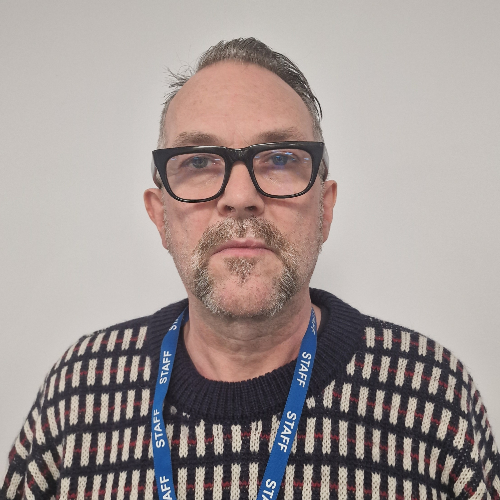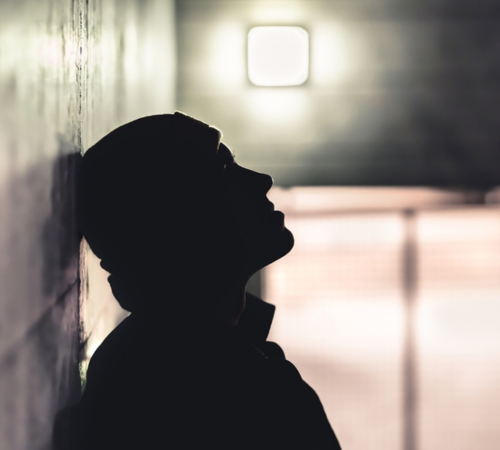
Written by:

Medically Reviewed by:
Last Updated:
March 4th, 2025
Nitrazepam Addiction Treatment | Detox and Rehab
If you are fed up with Nitrazepam taking over your life, you’re not alone. At Linwood House, we have met many people facing the same struggles, and we are here to support you in finding a way out. Our approach isn’t just about stopping Nitrazepam use; it’s about understanding the reasons behind Nitrazepam addiction and dealing with those issues head-on. We are dedicated to helping you build a future full of health, happiness and new opportunities.
Nitrazepam detox: Wiping the slate clean
Just as physical dependence is usually the first aspect of benzodiazepine addiction to develop, it is also the first thing that is addressed during treatment. This is done through medically assisted Nitrazepam detox, an important process which allows you to clear all the Nitrazepam from your body so you no longer crave it and can focus on therapy.
This is not always easy as long-term use of Nitrazepam can cause it to become deeply embedded in your systems. This means that suddenly quitting can cause your brain to react negatively when Nitrazepam levels start to drop.
It is this negative reaction that is called Nitrazepam withdrawal in medical terms and it can be a very hard experience to go through. However, Linwood House has dedicated medical teams who will guide you through Nitrazepam withdrawal so that you come out the other side safely and ready for the next step.
What to expect from Nitrazepam withdrawal
The prospect of withdrawal is one of the biggest obstacles that put people off seeking treatment. You may have already tried to quit Nitrazepam before and experienced some Nitrazepam withdrawal symptoms. These usually begin within a day of stopping with common symptoms including:
After a few days, these symptoms reach their peak intensity and it is then that medical help like that available at Linwood House is most important. Your doctors will prepare a Nitrazepam detox plan for you which will probably involve you taking gradually less and less Nitrazepam each day to slowly wean you off it. They may also give you other medicines so you don’t feel so bad and are able to get some rest.
In people with serious underlying health problems or who have been using Nitrazepam for a long time, there is a risk of more dangerous Nitrazepam withdrawal symptoms including:
- Seizures
- Hallucinations
- Delirium
- Psychosis
If this includes you, our medical team will provide round-the-clock care to prevent these symptoms from occurring. They will also adjust your detox plan as needed to avoid any issues that may arise.
By the end of the second week, you should find that Nitrazepam withdrawal symptoms are beginning to fade, and you should be sleeping better and feeling more like yourself. Most people will end withdrawal at around the two-week mark, but a few may still feel some ongoing symptoms like anxiety or insomnia for another month or so. They will receive extra help to manage these symptoms until they have all passed.
Nitrazepam rehab: Unpicking the causes
Treatment for Nitrazepam addiction has advanced enormously in recent years, and we now understand that just treating physical dependency without looking at the other aspects of the condition is usually unsuccessful. Nitrazepam rehab at Linwood House is all about helping you understand why you became reliant on Nitrazepam and how you can live a happier, healthier life without it.
We do this through an extensive benzodiazepine rehab programme, delivered in our inpatient treatment centre. This will introduce you to various treatment therapies, with some of our most effective being:
Group therapy
There is a huge amount of strength to be found in others, and group therapy gives you the chance to connect with people who are also trying to quit drugs or alcohol. Sharing your story and hearing theirs can make a huge difference in feeling understood and supported during your time in Nitrazepam rehab.
One-to-one therapy
This is when you sit down with a therapist who listens and understands why you turned to Nitrazepam. Together, you will explore your feelings and find healthier ways to handle life’s ups and downs. It’s a safe space to talk about anything on your mind.
Family therapy
Family therapy can make a big difference in your recovery journey. It helps your loved ones understand what you are going through, rebuilds trust that has been broken and is a chance for everyone to come together, heal and support each other.
Art therapy
Art therapy lets you use creativity to express feelings that might be hard to talk about. You may be guided to draw, paint or do other types of art activities which can help to relax you and help you process emotions in a safe and supportive way.
Yoga therapy
Yoga therapy combines movement and breathing to help you relax and feel more in control. It is a great way to reduce stress and improve your overall well-being. Plus, it’s something you can continue doing even after rehab!
Mindfulness and meditation
Meditation and mindfulness are ancient practices that help you stay focused on the present moment. These simple practices can have a big impact on your mental health and can calm your mind and support your recovery.
Nitrazepam relapse prevention: Strategies for a new life
Overcoming Nitrazepam addiction is an incredible victory, but it is just the beginning of your new life. At Linwood House, we will be there to help you long after you leave us so that you are never alone again to struggle.
The road to recovery always has its ups and downs but having a game plan can really help you stay on track. We will help you put together a personal relapse prevention plan during your time in rehab to keep you moving forward and handle whatever life throws at you.
Here are some effective strategies that will likely form part of your plan:
Staying connected
This means participating in weekly group therapy through Linwood House’s aftercare programme (100% free for a year) and joining local support groups like Narcotics Anonymous.
Diving into new hobbies
Taking up activities that you enjoy can keep your mind busy and provide healthier ways to fill your newfound time. Whether it’s sports, painting or anything else, find what makes you happy and stick at it!
Leaning on your friends and family
Don’t be afraid to reach out to the people who care about you. Your friends, therapists and family can offer encouragement and help you stay focused on your recovery.
Living healthy
Eating right, exercising and getting enough sleep can make a big difference in how you feel. Remember that a healthy body supports a healthy mind and both are key for relapse prevention.
Spotting your triggers
Your therapy sessions will help identify what might tempt you to use Nitrazepam again and come up with ways to handle those situations. Being prepared in this way can help you stay strong when you feel at your most vulnerable.
Begin treatment for Nitrazepam addiction today
Had enough of Nitrazepam controlling your life? Then, take back control with Nitrazepam addiction treatment at Linwood House. We provide expert-led detox, rehab therapy and aftercare to help you put Nitrazepam firmly in your past. Reach out to us today and let’s start your journey to a brighter, drug-free future.


